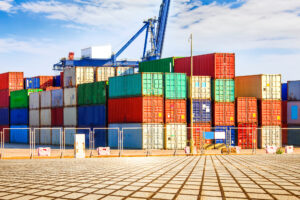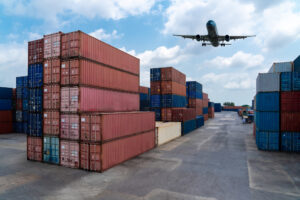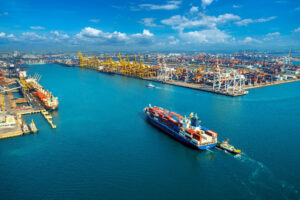When it comes to international shipping, the two main modes of transporting goods are air freight and ocean freight. Both have their advantages—and your choice could affect your timelines, your budget, and even your relationship with your customers.
If you’re an importer or exporter operating in West Africa, understanding the pros and cons of each method is essential to managing your supply chain more effectively. In this article, we break down the key differences and help you decide which option best fits your cargo needs.
1. Speed: When Time Is of the Essence
If your shipment is time-sensitive, air freight is the clear winner.
- Air Freight: Ideal for goods that must reach their destination quickly—such as perishable items, urgent parts, or high-value electronics.
- Ocean Freight: Typically slower, with transit times ranging from 20 to 40 days depending on the route and port activity.
💡 Did You Know?
According to the World Bank, logistical delays in Sub-Saharan Africa can reduce exports by as much as 30%. In such cases, air freight helps bridge the gap where infrastructure or port congestion slows sea shipping.
2. Cost: What Can Your Budget Handle?
Ocean freight is far more cost-effective for large volumes or heavy cargo. If budget is your priority, this option usually wins.
- Ocean Freight: Charges are based on container size (20ft or 40ft) or LCL (Less than Container Load). Ideal for bulk shipments like machinery, building materials, or FMCGs.
- Air Freight: Billed by weight and volume (chargeable weight), making it expensive for large or dense shipments.
🚚 Example from Ghana:
Shipping a 40ft container from China to Tema Port could cost around $4,000–$6,000, while air freighting that same load could exceed $25,000. The difference is massive unless the shipment is small and urgent.
3. Cargo Type: Not All Goods Travel the Same
Different cargo requires different handling.
| Cargo Type | Recommended Mode |
| Perishables (e.g., food, medicine) | Air Freight |
| Bulk goods (e.g., cement, furniture) | Ocean Freight |
| Fragile electronics, high-value goods | Air Freight |
| Large industrial equipment | Ocean Freight |
If you’re exporting gold, cocoa, or textiles—Ghana’s top export products—choosing the right freight method based on preservation, safety, and volume is key.
4. Reliability: Consistency in Scheduling
- Air Freight: More consistent. Flights run frequently, and delays (if any) are usually short-term.
- Ocean Freight: Vulnerable to port congestion (common at Tema and Lagos ports) and weather disruptions, leading to unpredictable delays.
🔎 Context:
In 2023, port delays across West Africa increased due to labor shortages and equipment challenges, highlighting the reliability gap between sea and air.
5. Customs & Clearance: Know the Landscape
Both methods require proper documentation, but air freight typically clears faster.
- Air freight shipments clear within 24–48 hours at most major airports in Ghana and Nigeria.
- Ocean freight may take 3–5 days or more due to port handling and container demurrage.
💼 Freight Consult Advantage:
Our team specializes in fast customs clearance with an average turnaround of 48 hours from port and 24 hours from airport, helping clients reduce costly delays.
6. Environmental Impact
- Ocean Freight is more environmentally friendly per ton of cargo.
- Air Freight emits significantly more CO₂ and should be reserved for shipments where speed justifies the environmental trade-off.
If your company has sustainability goals, consider prioritizing ocean freight where possible—or offsetting emissions via verified climate partners.
7. Regional Infrastructure & Trade Corridors
In West Africa, especially in ECOWAS countries, road networks and last-mile infrastructure remain a challenge. That makes port location and final delivery capability key to your decision.
- Air hubs like Kotoka International Airport (Accra) and Murtala Muhammed Airport (Lagos) serve as regional entry points for fast-moving goods.
- Seaports like Tema and Apapa are central for large-volume imports but often suffer from congestion.
🤝 Pro Tip:
Work with a freight forwarder (like Freight Consult) who understands local customs processes, road transport constraints, and has partnerships across the ECOWAS region for seamless inland delivery.
So, Which Freight Option Is Right for You?
Choose Air Freight If:
- Your shipment is time-sensitive
- You’re transporting high-value or fragile items
- You can afford a higher cost for speed
Choose Ocean Freight If:
- Your cargo is bulky or heavy
- You’re shipping in advance and can tolerate longer transit
- You want the most cost-effective option
Final Thoughts
There’s no one-size-fits-all solution. The best mode depends on your cargo type, timeline, budget, and destination. Most businesses benefit from a blended approach—using both air and ocean freight depending on the urgency and nature of each shipment.
At Freight Consult Ghana Ltd, we help our clients make the right call—backed by data, experience, and regional expertise.



